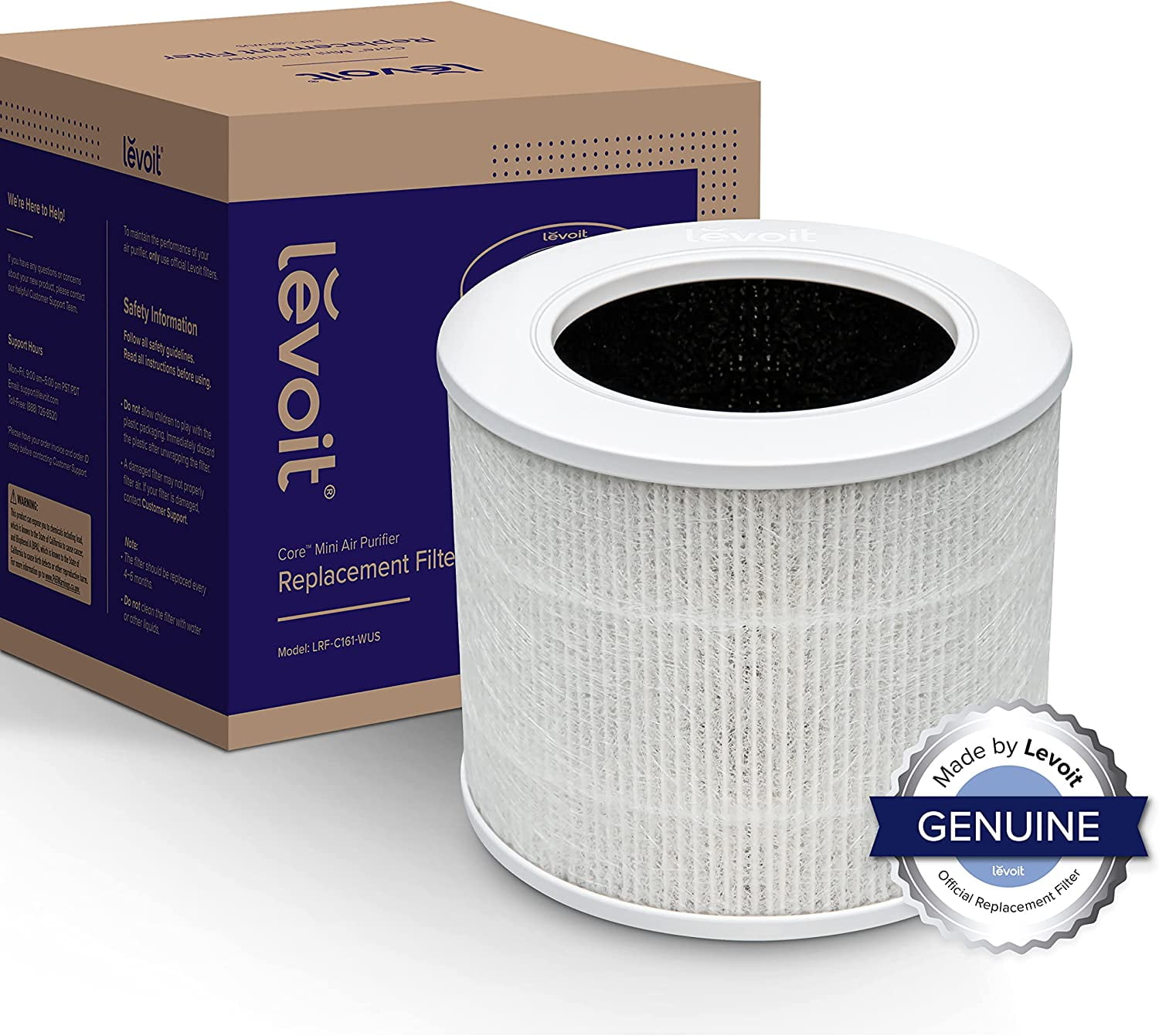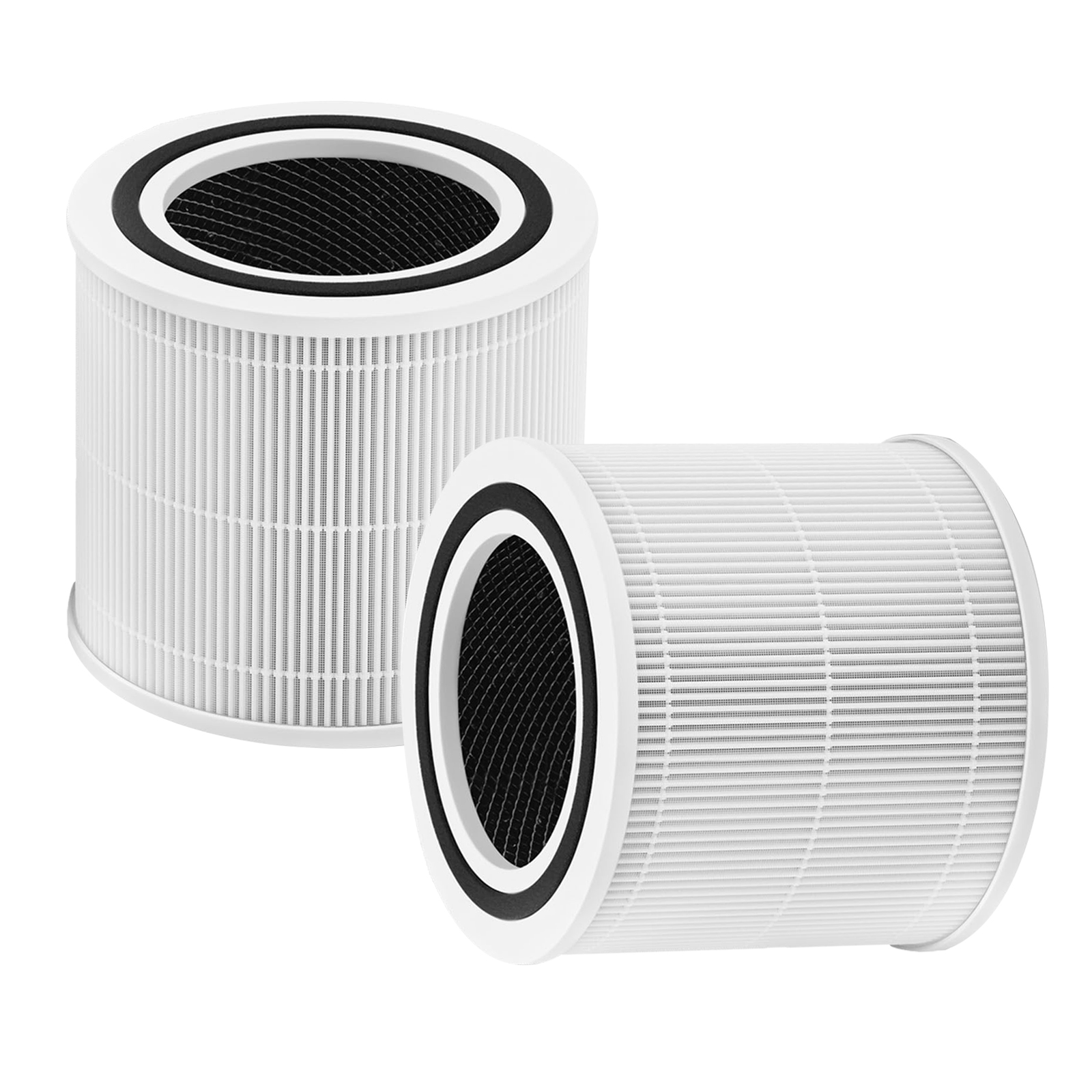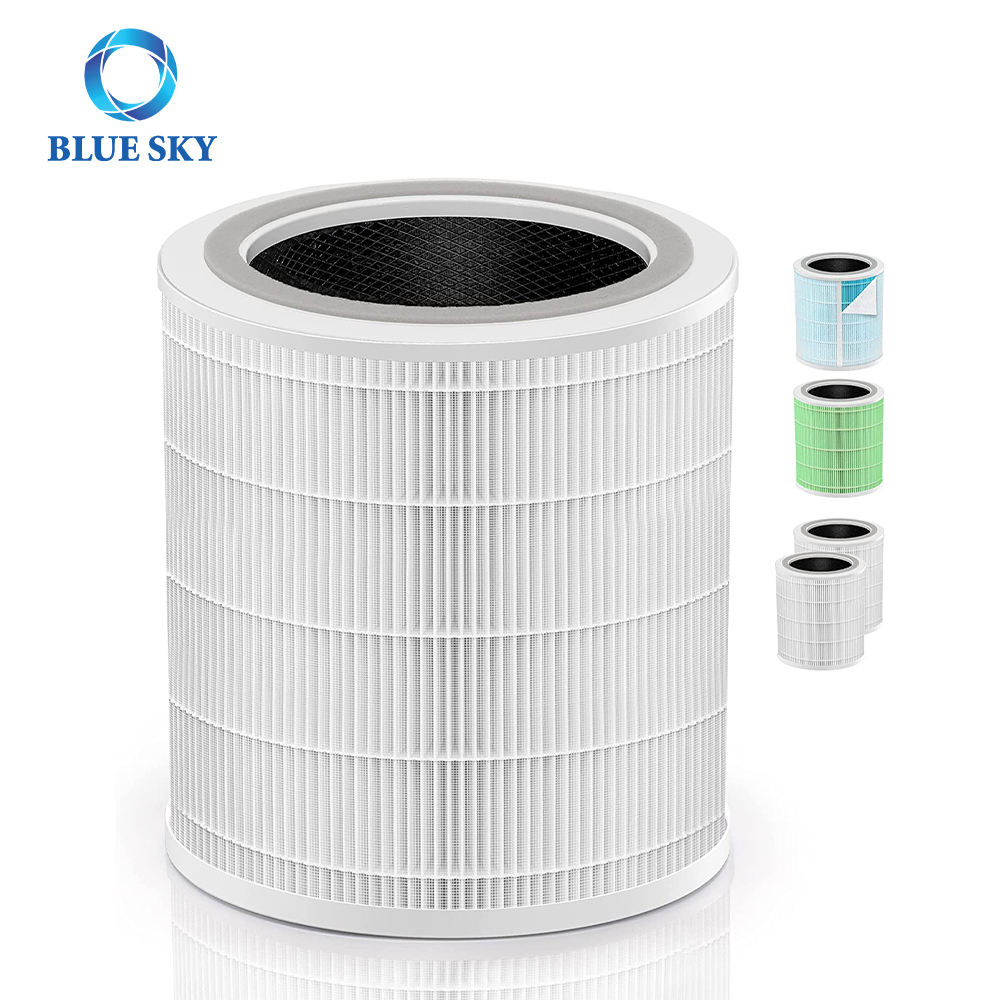Levoit Compact Hepa Air Purifier Filter Replacement

The unassuming air purifier, a ubiquitous fixture in homes and offices worldwide, hums quietly, diligently scrubbing the air we breathe. Yet, behind this veil of clean air lies a critical, often overlooked component: the filter. Specifically, the HEPA (High-Efficiency Particulate Air) filter in the popular Levoit Compact Air Purifier demands attention, as incorrect or delayed replacement can significantly compromise its effectiveness and potentially introduce new health concerns.
This article delves into the intricacies of Levoit Compact HEPA air purifier filter replacement. We will explore the optimal replacement schedules recommended by Levoit, potential health consequences of neglecting these guidelines, the cost implications of both timely and delayed replacements, and the environmental impact associated with filter disposal.
Understanding HEPA Filtration and the Levoit Compact
HEPA filters are designed to capture at least 99.97% of particles that are 0.3 microns in diameter. This includes dust, pollen, pet dander, mold spores, and some bacteria and viruses. The Levoit Compact, a popular model known for its affordability and small footprint, relies on a multi-stage filtration system, typically including a pre-filter, a HEPA filter, and an activated carbon filter.
The pre-filter traps larger particles, extending the lifespan of the HEPA filter. The activated carbon filter absorbs odors and volatile organic compounds (VOCs). The HEPA filter itself is the workhorse, responsible for removing the fine particulate matter that can penetrate deep into the lungs.
Recommended Replacement Schedule and Its Importance
Levoit officially recommends replacing the HEPA filter in its Compact Air Purifier every 6-8 months under normal usage conditions. This recommendation is based on internal testing and is intended to ensure optimal performance. Factors such as air quality, frequency of use, and the presence of pets can influence the actual lifespan of the filter.
Ignoring this schedule can lead to several issues. As the filter becomes saturated with particles, its efficiency decreases, reducing its ability to remove pollutants. A clogged filter also forces the purifier to work harder, potentially shortening its lifespan and increasing energy consumption.
Health Risks of Neglecting Filter Replacement
A severely clogged HEPA filter can become a breeding ground for mold, bacteria, and other microorganisms. These contaminants can then be released back into the air, exacerbating allergies, asthma, and other respiratory problems. In some cases, a dirty filter can even become a source of new allergens and irritants.
Moreover, a less efficient filter allows more particulate matter to circulate in the air. Prolonged exposure to fine particulate matter has been linked to cardiovascular disease, respiratory infections, and even premature death, according to the World Health Organization (WHO).
Cost Analysis: Timely vs. Delayed Replacement
The cost of replacing a Levoit Compact HEPA filter typically ranges from $15 to $30, depending on the retailer and whether you opt for a genuine Levoit filter or a compatible aftermarket option. While delaying replacement might seem like a way to save money, it can actually lead to higher long-term costs.
A strained air purifier consumes more energy, resulting in higher electricity bills. Premature failure of the unit due to overwork can necessitate a costly replacement. Healthcare costs associated with respiratory problems exacerbated by poor air quality can also outweigh the cost of regular filter replacements.
Navigating Aftermarket Options
While Levoit recommends using genuine replacement filters to ensure optimal performance and compatibility, many aftermarket options are available. These filters can be more affordable but may not meet the same quality standards as genuine filters. Consumers should carefully research aftermarket options, reading reviews and comparing specifications before making a purchase.
It's crucial to ensure that the aftermarket filter is a true HEPA filter, certified to meet the 99.97% efficiency standard. Some filters may be marketed as "HEPA-like" or "HEPA-type," but these may not offer the same level of filtration.
Environmental Impact of Filter Disposal
Used HEPA filters pose an environmental challenge, as they are typically not recyclable. Most end up in landfills, where they contribute to waste accumulation. The plastic components of the filter can take hundreds of years to decompose.
Some companies are exploring innovative solutions for recycling HEPA filters, but these options are not yet widely available. Consumers can minimize their environmental impact by choosing filters with less plastic packaging and by exploring options for donating used filters to organizations that may be able to repurpose them.
Future Trends and Innovations
The air purification industry is constantly evolving, with ongoing research into new filtration technologies and more sustainable materials. Some manufacturers are developing washable HEPA filters, which could significantly reduce waste. Others are exploring the use of bio-based filters made from renewable resources.
Smart air purifiers with sensors that monitor filter life and air quality are becoming increasingly common. These devices can provide more accurate filter replacement reminders and help consumers optimize their air purification strategies. Innovation is also focused on improved filter designs that last longer and capture a wider range of pollutants.
The Levoit Compact Air Purifier's efficiency hinges on proper filter maintenance. Failing to replace the HEPA filter according to the manufacturer's recommendations can lead to reduced air quality, potential health risks, increased costs, and a negative environmental impact. By understanding the importance of timely replacement and exploring sustainable disposal options, consumers can maximize the benefits of their air purifier while minimizing its drawbacks.


















